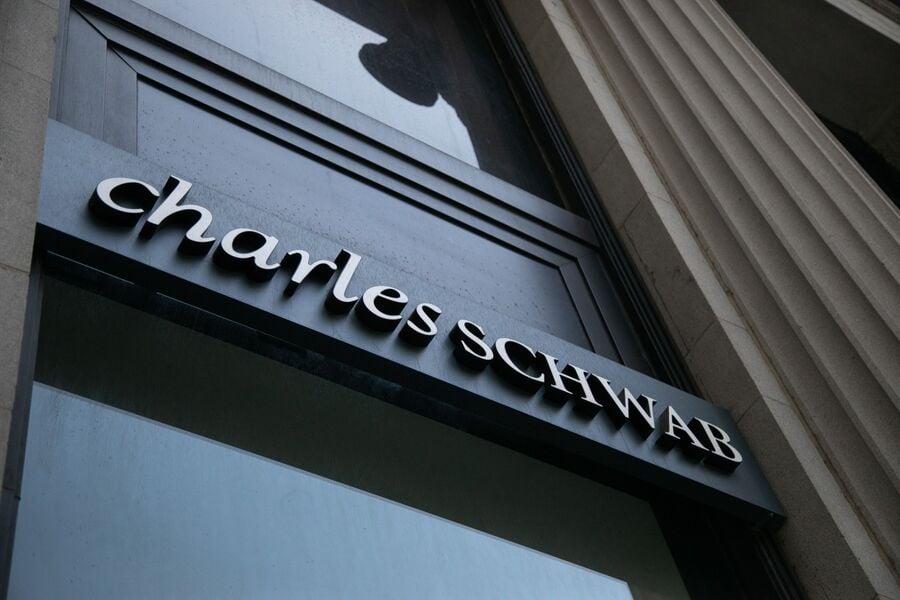

Charles Schwab Corp. reported that fewer clients opened new brokerage accounts with the investing giant than analysts expected, sending shares of the company down in early trading.
New brokerage accounts in the quarter rose to 985,000, the company said Tuesday in a statement. While that’s up from 960,000 in the same period a year earlier, it’s less than the 1.04 million analysts in a Bloomberg survey were expecting.
Still, Schwab reported $1.33 billion in net income for the three-month period, beating a $1.23 billion average of analyst estimates. Earnings per share for the quarter were 66 cents, which also topped expectations.
“Schwab’s ‘no trade-offs’ value proposition continued to resonate with investors,” Co-Chairman and Chief Executive Officer Walt Bettinger said in the statement.
The retail brokerage space has gotten more crowded as consumers flocked to the markets during the pandemic and have stuck with their new trading habits. Schwab has maintained its more traditional approach to retail investing as compared with crypto-friendly competitors like Robinhood Markets Inc., but will roll out an alternative investments platform for qualified, self-directed individual investors this year.
Shares of the company dropped 3.3% in early trading in New York. The stock had risen 9.1% this year through the close of trading on Monday.
The Westlake, Texas-based firm announced in May that Mike Verdeschi, a three-decade veteran of Citigroup Inc., will take over as chief financial officer from Peter Crawford. Crawford helped Schwab through last year’s financial turbulence, which hit the banking division.
Schwab, founded by Charles “Chuck” Schwab more than 50 years ago, oversees more than $9.4 trillion in total client assets.

Canadian stocks are on a roll in 2025 as the country prepares to name a new Prime Minister.

Two C-level leaders reveal the new time-saving tools they've implemented and what advisors are doing with their newly freed-up hours.

The RIA led by Merrill Lynch veteran John Thiel is helping its advisors take part in the growing trend toward fee-based annuities.

Driven by robust transaction activity amid market turbulence and increased focus on billion-dollar plus targets, Echelon Partners expects another all-time high in 2025.

The looming threat of federal funding cuts to state and local governments has lawmakers weighing a levy that was phased out in 1981.
RIAs face rising regulatory pressure in 2025. Forward-looking firms are responding with embedded technology, not more paperwork.
As inheritances are set to reshape client portfolios and next-gen heirs demand digital-first experiences, firms are retooling their wealth tech stacks and succession models in real time.
